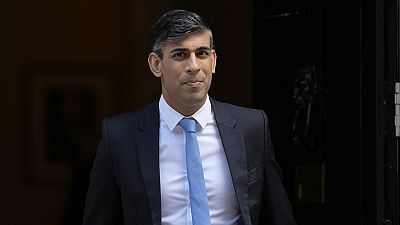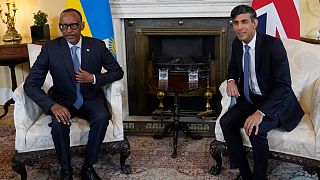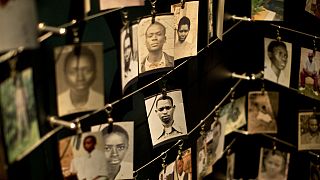Rwanda
Britain's plan to deport asylum-seekers to Rwanda hit a snag as the House of Lords introduced amendments to the Safety of Rwanda Bill. This sends the legislation back to the House of Commons for further review, delaying its passage.
The government had hoped the Lords would not block the bill, but the resistance highlights opposition in the upper house where the Conservatives lack a majority. Despite this setback, the bill is still expected to become law, likely next week.
The legislation aims to facilitate deportation flights to Rwanda, part of Prime Minister Rishi Sunak's strategy to "stop the boats" carrying migrants across the English Channel. Home Office Minister Michael Tomlinson emphasized the need for the law to combat human smuggling.
However, the plan faces legal challenges, and no migrants have been sent to Rwanda under the existing agreement signed two years ago. Critics argue it is unethical to deport migrants to a country they do not wish to live in.
The Safety of Rwanda Bill is designed to overcome a ban on sending migrants to Rwanda imposed by the U.K. Supreme Court, which ruled in November that the East African country is not a safe destination for asylum-seekers because there is a risk they could be returned to the conflict-wracked home countries they'd fled.
In response, Britain and Rwanda signed a treaty pledging to strengthen protections for migrants. Sunak's government argues the treaty allows it to pass the new law, which pronounces the country safe, making it harder for migrants to challenge deportation and allows the British government to ignore injunctions from the European Court of Human Rights that forbid removals.
Human rights groups, refugee charities, senior Church of England clerics and many legal experts have criticized the legislation. In February a parliamentary rights watchdog said the Rwanda plan is " fundamentally incompatible " with the U.K.'s human rights obligations.
The Safety of Rwanda Bill was approved in January by the House of Commons, where Sunak's Conservatives have a majority, but met strong opposition in Parliament's upper chamber, the House of Lords. Members of the Lords repeatedly inserted amendments to water down the legislation, including by exempting Afghans who worked with British forces from deportation.
The Commons rejected them all, but the Lords has repeatedly restored the changes.
The government has refused to accept any amendments. A spokesman for Prime Minister Rishi Sunak said Wednesday: "We're not considering concessions."
Britain's main opposition parties oppose the legislation. Scottish National Party lawmaker Alison Thewlis urged the Labour Party to repeal the law if it wins an election later this year, as polls suggest it will.
"The Rwanda Bill is a turd which cannot be polished," she said. "It is absolutely disgusting and objectionable in every sense."













Go to video
Ghana: Mahama assembles team to drive anti-corruption agenda before taking office
Go to video
Deadly violence in Nigeria linked to breakup of United Methodist Church over LGBTQ policies
03:30
At least 25 killed, dozens missing after an overcrowded boat capsized in Congo
Go to video
800 arrested over Nigerian crypto-romance scam
Go to video
Kenyan man jailed 50 years for murdering gay rights Activist
Go to video
France rushes help to Mayotte, where hundreds or even thousands died in Cyclone Chido